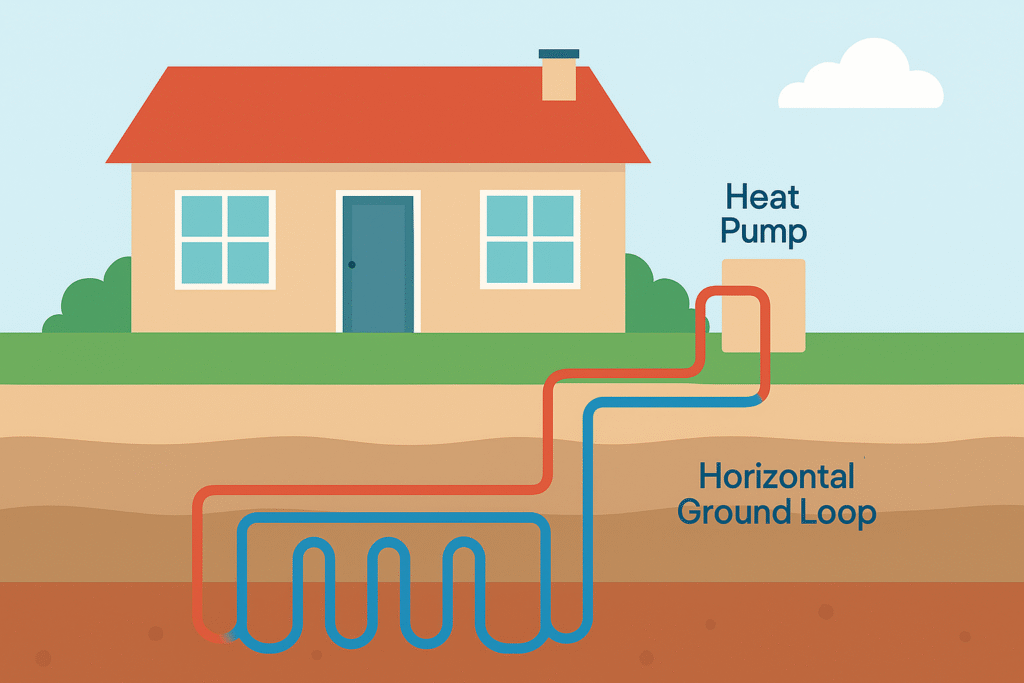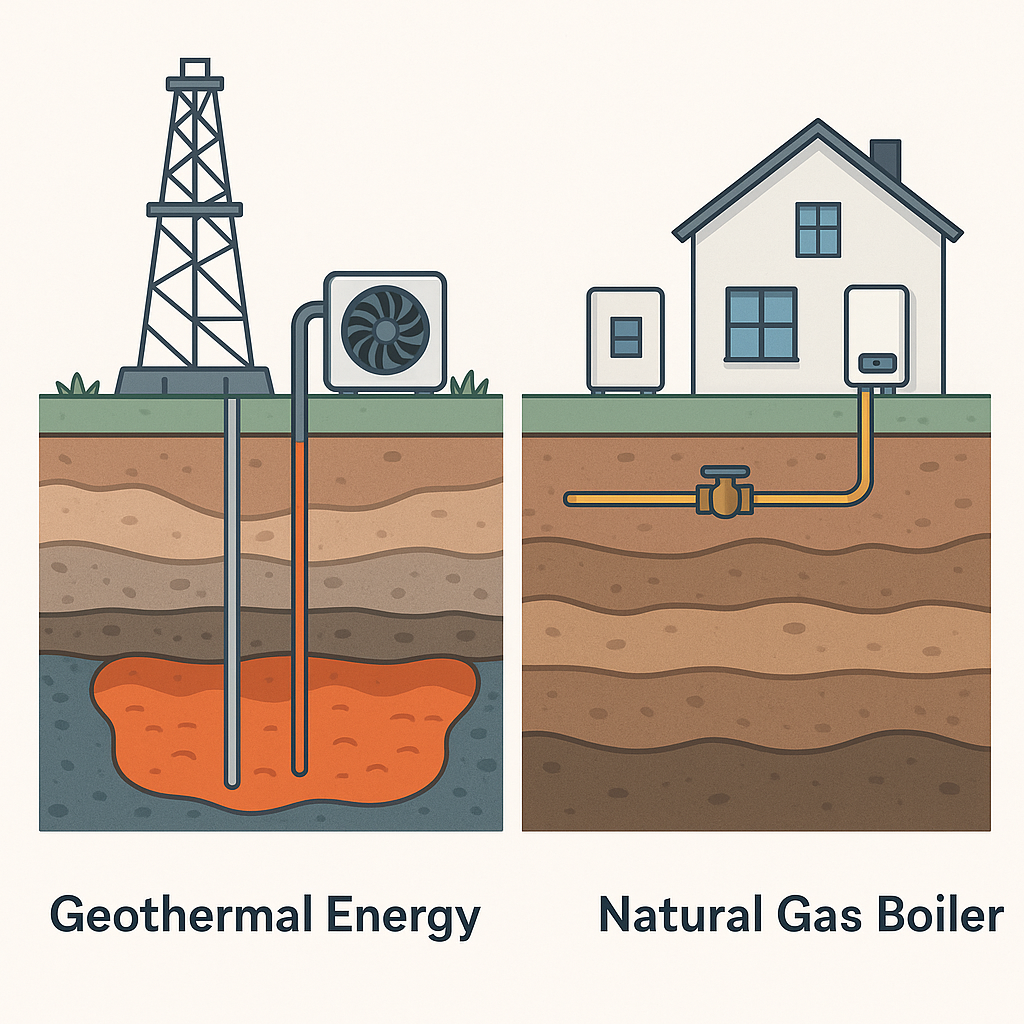
Some 30 million British households use natural gas boilers, accounting for 85% of properties. However, low-carbon alternatives like air source and ground source heat pumps have been growing in popularity.
Ground source heat pumps are effectively a form of low-depth localised geothermal energy with a network of pipes known as a ground loop installed just beneath the surface. These pipes include a heat transfer fluid which flows through and harnesses heat from the Earth’s thermal energy.
How Much Do Ground Source Heat Pumps Cost?
As with air source heat pumps, ground source heat pumps are more expensive than gas boilers, however, as we’ll discusss shortly there are arguments for and against investing despite the cost. Here we’ll take a look at average costs, government schemes and whether its worth the price.
Average Total Installation Costs and Government Schemes
On average, ground source heat pumps are priced at between £12,000 and £45,000 with a range of options and output capacities to choose from.
It should be noted, however, that in some cases ground source heat pumps come with new-build properties. This can make it more financially viable where homeowners have invested in purchasing a new home but do not have a budget for a separately installed ground source heat pump.
Also, as mentioned, it’s possible to have the installation cost reduced through the Boiler Upgrade Scheme. Households eligible for a BUS grant in England or Wales can have the total cost reduced by £7,500.
In many cases, this would still leave a ground source heat pump instalment exceeding £20,000, making it prohibitively expensive for many households.
That said, small-to-mid sized properties may find that a lower output system initially priced around £12,000 to £25,000 will suffice. In this case, a BUS grant could bring pricing down to £4,500 to £17,500.
In fact, Nesta estimates that with a BUS grant, a ground source heat pump for a small property might cost close to £8,000 or about £15,000 without a grant.
For households in Scotland, Home Energy Scotland provides interest-free loans and grants for eligible households. Homes in Northern Ireland could also have installation costs lowered through the Affordable Warmth Scheme.
Either way, a ground source heat pump is quite an investment, especially considering that the average gas boiler costs around £1,000 to £4,000. Of course, GSHPs distinguish themselves in many ways that can make the investment worthwhile for some households.
Average Running Costs of Ground Source Heat Pumps
Ground source heat pumps have generally similar running costs to natural gas boilers, though given the volatility of gas prices, it’s not possible to set a definitive yes or no answer as to which one is cheaper. And, as we’ll touch on, looking to the future is a key consideration with GSHPs a long-term investment.
Currently, ground source heat pumps offer 300-400% efficiency (since they generate more electricity than is required to run), whereas gas boilers tend to come with efficiency ratings in the region of 90-95%.
With electricity being several times costlier than natural gas, this results in similar overall running costs that can vary depending on gas prices and to a lesser extent electricity prices since the latter are generally less volatile.
With the UK aiming for increased energy self-reliance and 100% renewable electricity by 2030, there’s a good chance that ground source heat pumps can become consistently more affordable to operate over time.
Another factor that could reduce running costs is the potential for the technology to become more efficient over time, though that would be more relevant to purchasing ground source heat pumps at a later point in time.
Are Ground Source Heat Pumps Worth The Cost?
What is the primary case for having a ground source heat pump installed despite the cost? Some of the key advantages of GSHPs include:
- Potentially lower running costs due to high efficiency
- Durable and can last for 25-50 years, far longer than a gas boiler
- More stable energy bills with gas prices being generally more volatile
- Significant reduction in household heating carbon emissions
- Future-proofing your property should gas boilers be phased out in the coming decades
As you can see, the case for having a ground source heat pump installed is less about definitive math because it depends on the main reasons you’d consider a GSHP and how much running costs may come down in the years and decades ahead.
With a government scheme to back the installation cost, the potential to save money over time (should costs come down as much as some indicators suggest) and additional benefits like a reduced carbon footprint and even increasing the resale value of your property could make the extra cost worthwhile.
All in all, whether or not it’s worth having a ground source heat pump installed will vary for each household based on their budget, preferences, requirements and reasons for making the switch.
Ground source heat pumps are an innovative low-depth geothermal energy source that could help power the decarbonisation of domestic and commercial heating across the UK.
Lower installation costs will likely be needed to entice more households, though some will find the investment is worth it already. There are around 30,000 to 38,000 ground source heat pumps installed in the UK according to Nesta, with a further 250,000-or-so air source heat pumps.


